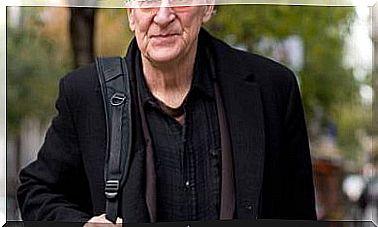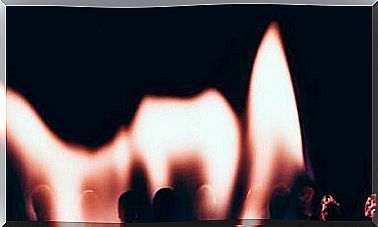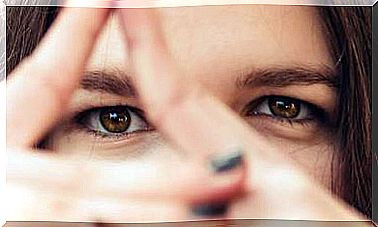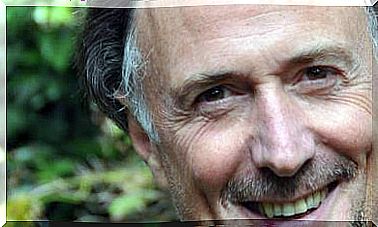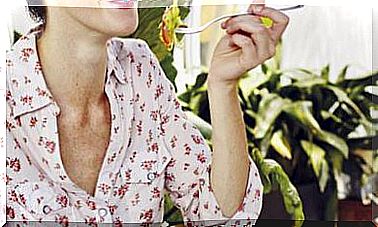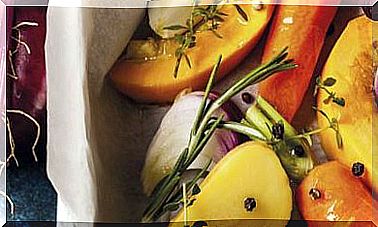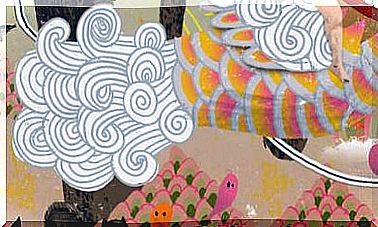“Grandparents Tell Us About The Connection With The Earth”
Journalist and writer, has published “The voice of the wise”, part of a project to collect the memory of the elderly.
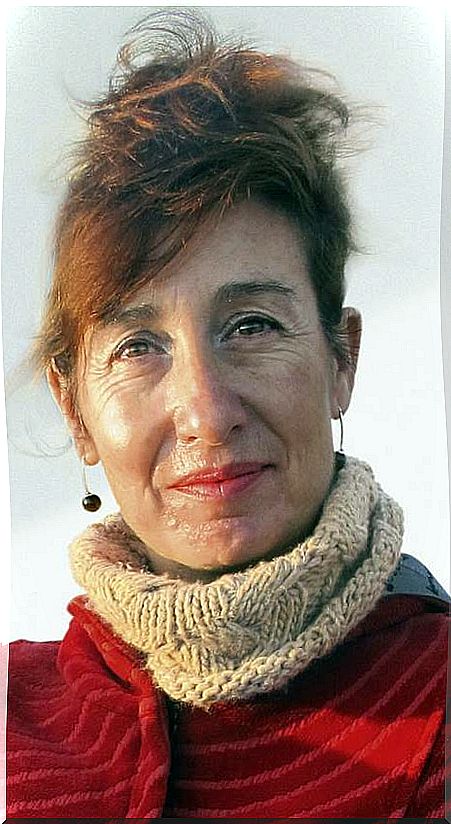
Journalist and writer, Elena García Quevedo has long understood that it was not enough to portray reality as an informant, with what her eyes saw. She wanted to go further, to capture the essence of people and events, of tastes and smells, of life.
After spending a few years as a correspondent for the SER network in the Middle East, one of the most conflictive regions on the planet, he began a long-term project in which he has just taken his first step: collecting the memory of the elders, of those grandparents who they are dying and with whose disappearance the thread that links the world with ancestral knowledge is broken, to which little space leaves an accelerated, extremely technological and excessively consumerist society.
Interview with Elena García Quevedo
When were you aware of the need to collect the voices of the elders?
Ever since I was in Jerusalem as a correspondent, whenever they spoke to me about a grandfather or a grandmother, I realized that I had a pending task with them. I had already started the road before, in my first reports in Spain, when, every time I wrote a story, I looked for the elderly because I knew that they have the memory that no one else has, because they accumulate wisdom, the thread that connects time. Some, when I met them, would write their history because they knew that when they were not there, it would be lost. So I began to accumulate interviews, which have ended in The Voice of the Wise Men. There were also triggers. An important one was the meeting with Piedad Isla, an 80-year-old photographer from the Palencia mountains who portrayed the life of her
land. I put aside an in-depth interview with her and when I returned and went to meet her, she was gone. That death made me aware that an entire generation was disappearing, the last that lived without technology.
I suppose that the losses have been many, and that much wisdom has disappeared without our realizing it.
Yes. In fact, it happened to me again with another grandfather from Tenerife. When I called him, he wasn’t there either. Others fell ill with Alzheimer’s, dementias … In the case of the writer José Luis Sampedro I met him through another project he had underway, the documentary Generación perdida , which talks about the situation of young people with the crisis. And he also passed away shortly after. That is why it is important to recover them, because time is running out.
They have the memory that no one else has, because they accumulate wisdom, the thread that binds time.
In Africa they say that when an old man dies, a library is burned. But here we tend to push them away, to ignore them.
Some people will listen to them, young people who do not want to lose the bond; they are the hope, but they are small oases. In most cases this is not the case, and it has to do with the world in which we live, with the consumerist system, which enhances the values of Plato’s cave. The much you have, the much you worth; so much worth, so many samples. There is little that wise grandparents can do in a world that moves without time to listen. The way they transmit their knowledge has to do with day-to-day dead times, with oral transmission. This is how his memory was sculpted, lengthening the thread. And now, not even in the most remote places, children have time to dedicate to their grandparents. The moments that used to exist in the homes around the fire no longer exist; the scale of values of the kids is different and the dead times are filled with television.
It seems little possible to go back to the past, turn off the televisions …
It is not about turning them off. The question is what is transmitted by them. If the stories are not true, if children and adults think that happiness is buying more and more, success and obtaining eternal youth, something is wrong. Kids are educated in values for which grandparents do not count, and this has been the case for the last three generations. But everything can be done in favor. This society has given a lot of power to those who sculpt minds and, in the end, we are living in cities without thinking about other spaces; that is not what the body needs. With more relationship with the earth, many of the needs that have created us would be covered because it gives us peace, joy, energy. It is not about going back to the villages, but about assuming this reality and making small changes in life. That is what the grandparents talk about, the connection with the earth.
One of them is, without a doubt, the peasant Agustín, whose life project is plunged and resurfaces at age 80.
Agustín is an example of someone who resists succumbing, but positively, being aware of what he is doing. He told me that from the earth we learn biodiversity, why it is important to listen to the different. The last day I was with him, he took me to his garden so that I could see how everything begins to grow from the small, so that I understand that you have to have a base and start everything in life from below. His garden was thrown at him, which he could not protect from the machines, but he went somewhere else and started again.
Keeping that memory in mind can help us, because the crisis is not the end of the world and there are values from the past that are valid.
Are these grandparents aware of their social role?
Not all. In fact, another motivation for starting this project has been that more people realize their role. Right now we are in a very interesting moment, of change, in which we can all do something. And the grandparents, who have remained silent, too. After presenting the book
in Burgos, an old man told me that he was going to start writing about his past, his favorite places, the customs of yesteryear … He wanted to do it for his grandson. But many are not aware of what they can contribute. My own grandmother only talked to me about how hard life was before. This summer he began to tell me about cooperatives, how they were organized, about the spirit of solidarity. Having that memory present can help us, because the crisis is not the end of the world and there are values from the past that are valid. In fact, there are already people who are returning to the field without leaving technology or going back to the past, but flowing with their time and with the land.
Does everyone have knowledge worth passing on?
The important thing is that they are aware of their knowledge. If they feel like they are getting in the way by telling their stories, it’s over. All the people I have portrayed in the book are little heroes who have been surpassing themselves and have realized how important it is to be each one, regardless of the role that you may play in life.
Among the voices that it gathers there are those of Israel, Latin America, Egypt, of many small Spanish towns … Are they very different?
There are different cultures but the root is the same because I looked for those who would tell me about the land. And they all agree on the need for balance, for nature, and they remind us that we must approach it again. When I was with the Arawaks of Colombia, I did not see much difference with what my grandfather represented, who was a farmer. But I’m still searching, because the book is only the first part of a more ambitious project: making a documentary film about the grandparents here. I’m knocking on some doors to see if it comes out ahead.
He commented that this has been an inner journey. Was the route traveled difficult?
It began at a time of internal and external conflicts in which I needed references. I am a sensitive, curious and nonconformist person. He had been as a correspondent in Israel, in Iraq, in countries with serious conflicts. In the second Intifada, in 2002, the smell of the Jenin massacre was recorded on me, and from there came the play The Smell of Coffee ; then I went to Iraq, and Winter arrived in Baghdad , which won the award for best documentary at the Malaga Film Festival. It was then that I began to write from the other side, from that of the person. Emotions entered my veins, pain and joy, and I entered her skin. That gave me a crack and I needed answers to get out of there. Among the grandparents there are those who have had a bad time, who have lived through the war, who looked for their own among the dead, who has had their parents in jail … And they did not sink, they processed him and a wisdom of knowing how to live and accept oneself; an acceptance from transformation, never from conformity. That is why they must be brought to the fore.
The voice of the wise
“People are looking in others for what they have to find inside.” Grandma Pilar lives in the Pyrenees, protecting a sacred valley.
She is one of the 23 people recognized for their wisdom whose voices are collected in Elena García Quevedo’s book: “They build bridges with our roots, they are references who teach the keys of life to children “, says the author.
